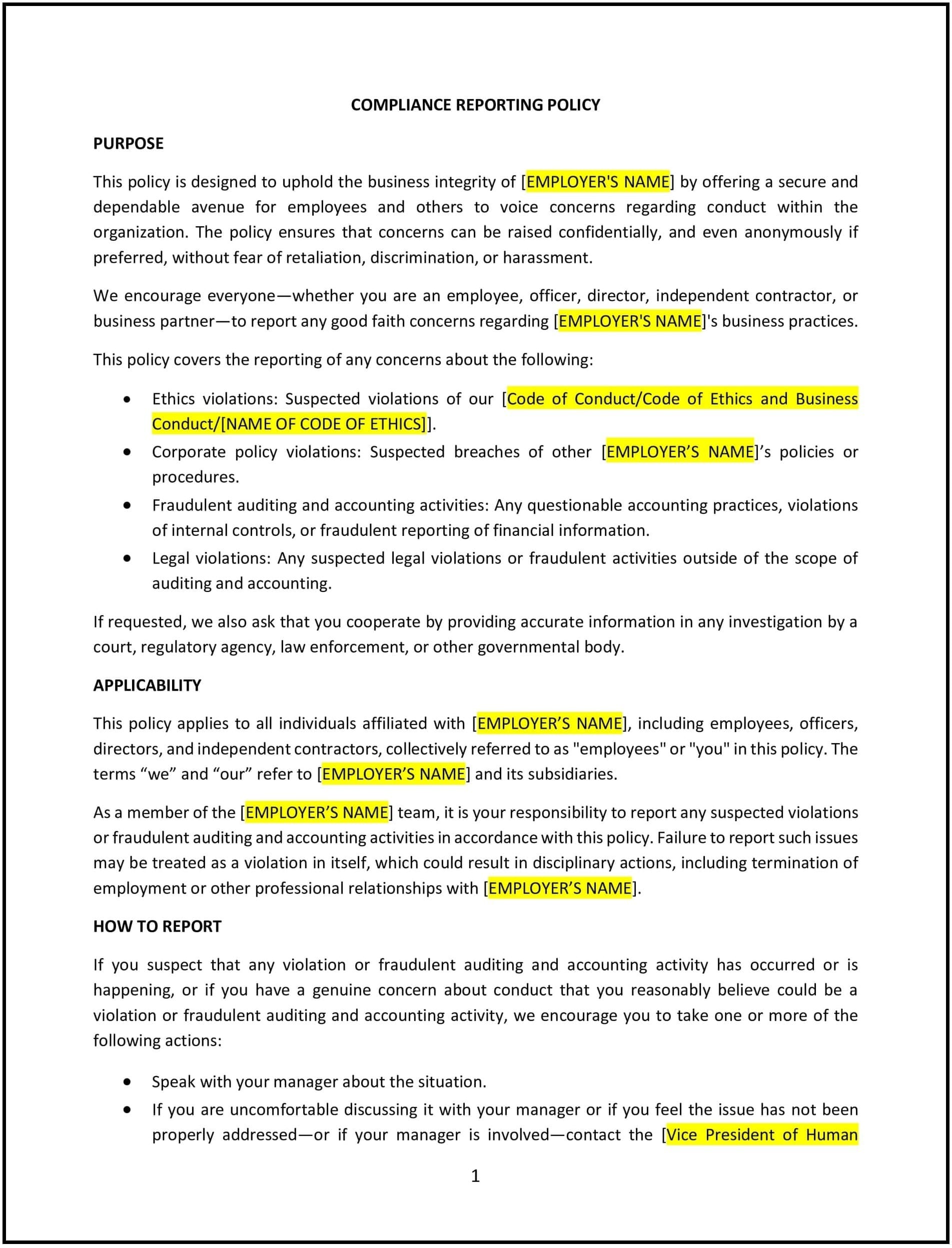Got contracts to review? While you're here for policies, let Cobrief make contract review effortless—start your free review now.

Customize this template for free
Compliance reporting policy (Maine): Free template
This compliance reporting policy is designed to help Maine businesses establish a structured approach for employees to report concerns about potential violations of laws, regulations, or company policies. It provides clear guidelines for reporting, investigation, and resolution, fostering a culture of accountability and ethical behavior.
By implementing this policy, Maine businesses can promote transparency, reduce risks, and ensure alignment with legal and regulatory standards.
How to use this compliance reporting policy (Maine)
- Define reportable issues: Specify the types of concerns employees should report, such as fraud, harassment, safety violations, or ethical misconduct.
- Outline reporting methods: Provide employees with options for reporting concerns, such as an anonymous hotline, online portal, or direct reporting to a supervisor or compliance officer.
- Establish confidentiality: Ensure that all reports will be handled confidentially to protect the identity of the reporter.
- Explain investigation procedures: Detail the steps for investigating reports, including timelines and who is responsible for conducting the investigation.
- Prohibit retaliation: Include a clear statement that employees who report concerns in good faith are protected from retaliation.
- Encourage regular training: Specify that employees and managers will receive training on recognizing and reporting compliance issues.
- Review regularly: Recommend periodic reviews of the policy to reflect changes in Maine laws, regulations, or company practices.
Benefits of using this compliance reporting policy (Maine)
Implementing this policy provides several benefits for Maine businesses:
- Promotes accountability: Encourages employees to report concerns, helping to identify and address potential issues early.
- Enhances transparency: Establishes a clear framework for managing compliance-related concerns.
- Reduces legal risks: Helps businesses stay compliant with Maine and federal regulations, minimizing penalties and liabilities.
- Protects employees: Reinforces a no-retaliation policy, creating a safe environment for raising concerns.
- Strengthens organizational integrity: Demonstrates a commitment to ethical practices and compliance.
Tips for using this compliance reporting policy (Maine)
- Communicate the policy: Share the policy with employees during onboarding and ensure it is readily accessible.
- Provide multiple reporting options: Offer anonymous and non-anonymous methods to encourage employees to report concerns.
- Train regularly: Ensure employees and managers understand how to recognize and report compliance issues effectively.
- Document thoroughly: Keep detailed records of reports, investigations, and outcomes to ensure transparency and accountability.
- Monitor trends: Analyze reports to identify recurring issues or areas needing improvement.
- Stay updated: Regularly review Maine laws and regulations to keep the policy compliant and relevant.